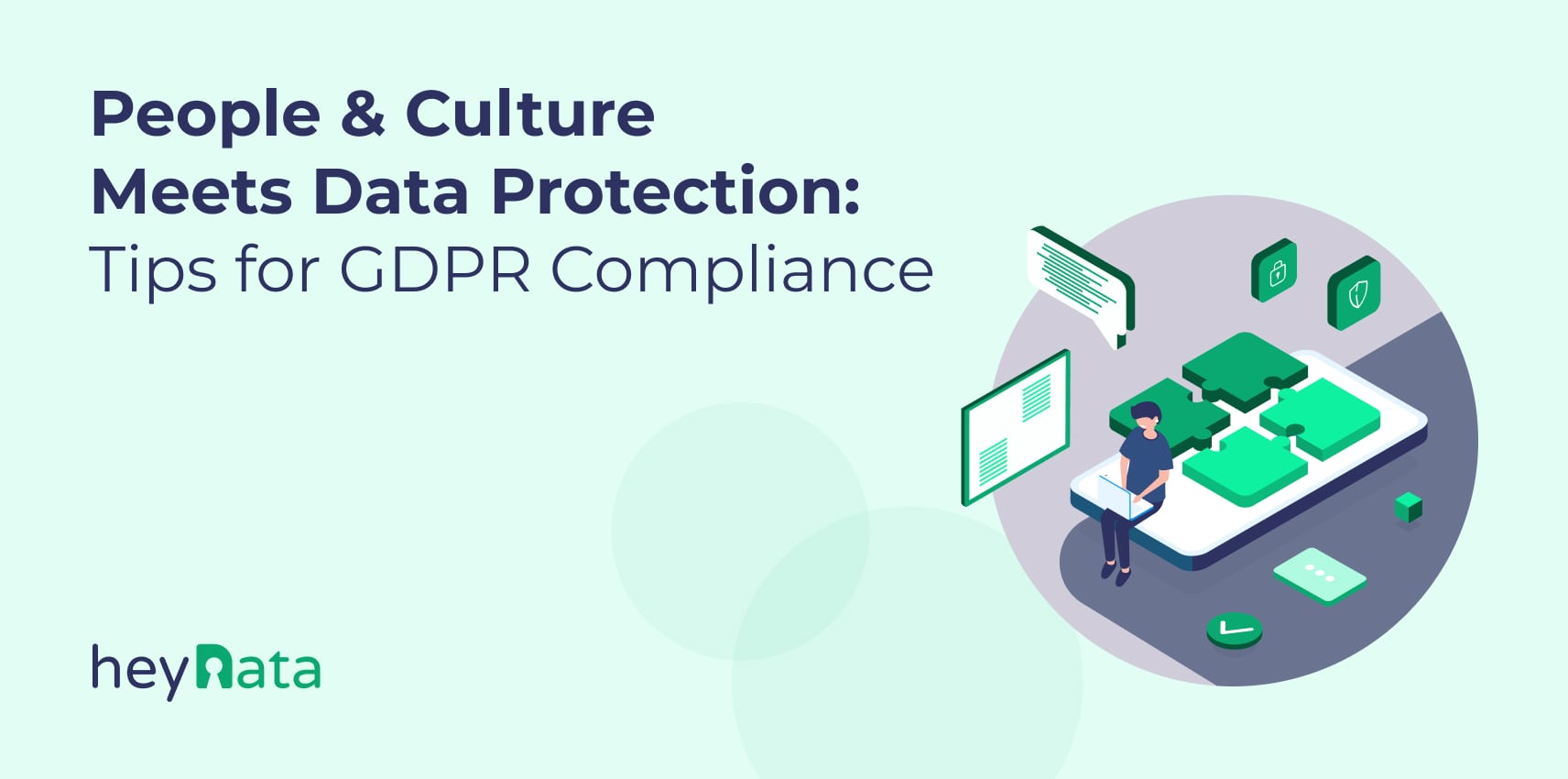
People & Culture Meets Data Protection: Tips for GDPR Compliance

Have you ever wondered how companies ensure that the personal data of applicants and employees is protected? From applications to payroll to internal HR processes, data protection is not only a legal obligation but also a sign of respect and responsibility towards the team. At heyData, we take this topic very seriously and want to show you today how we implement data protection in the People and Culture sector and remain GDPR compliant.
Table of Contents:
Why Is It Important?
People and Culture teams are known for working with a lot of sensitive data. From personnel administration to payroll to applicant management, a lot of personal and sensitive data is collected, which is essential for the work of the People-and-Culture team. To ensure that this data is well protected, we use tools such as our HR Information System (HRIS) Personio or a GDPR-compliant password manager as key components of our data protection concept. It is important to us that Personio and 1Password, as German companies, adhere to the strict German data protection laws and the GDPR, which gives us additional security.
See also: Secure Remote Work: Essential Data Security Tips for Employers and Employees
Using HRIS in a GDPR-compliant manner
In the People-and-Culture team at heyData, we mainly work with Personio, a German all-in-one HR software. With Personio, we manage all HR processes centrally and efficiently. The key functions we use include:
- Centralized Data Management: By centrally managing all employee data in Personio, we keep an overview and minimize sources of error.
- Rights and Role Management: Only authorized persons have access to sensitive data. The sophisticated rights and role management of Personio ensures that everyone only sees the data they really need.
- Automated Processes: Automation not only helps with efficiency but also ensures that data protection guidelines are consistently followed.
Data Deletion and Retention
Another important aspect of data protection is data deletion. It is crucial that personal data is not kept longer than necessary to ensure the protection of individuals and comply with legal requirements. At heyData, we have implemented clear policies and processes to ensure this.
- Regular Review: We regularly review our databases to identify outdated data.
- Automated Deletion Periods: We have set up automated deletion periods in our tools to ensure that data is deleted after the legal retention period expires. This is particularly important for applicant data.
- Manual Review: If necessary, we conduct manual reviews and deletions to ensure that no sensitive data is stored without authorization.
Sensitive Data in Safe Hands: Ensuring Confidentiality
The confidentiality of employee data is our top priority. We have implemented various measures to ensure that this data is protected. This includes technical, organizational, and personnel measures to ensure the highest security standards:
- Encryption: All sensitive data is stored encrypted, both during transmission and at rest.
- Training: Our employees are regularly trained on data protection and data security topics through the heyData Academy to ensure they understand the importance and best practices.
- Access Controls: Strict access controls ensure that only authorized persons have access to confidential information.
Teamwork and Data Protection: Staying Continuously Compliant
We quickly realized that data protection is not a one-time project, but an ongoing process. We rely on proven tools and have clear processes and guidelines to ensure that we always comply with GDPR. Data protection is a team effort, and everyone in our company contributes to safeguarding the data of our employees and external individuals or companies. Failure to adhere to these guidelines can have serious consequences:
- High Fines: Violations of the GDPR can lead to significant fines, which can jeopardize the financial stability of a company.
- Loss of Trust: Data protection breaches can permanently damage the trust of employees, customers, and partners, which can negatively affect the company's image.
- Operational Consequences: Data protection incidents can significantly disrupt internal processes and lead to inefficient operations as well as additional costs to manage the situation.
See also: The consequences of non-compliance


